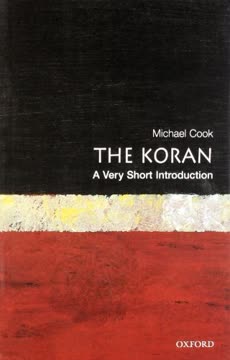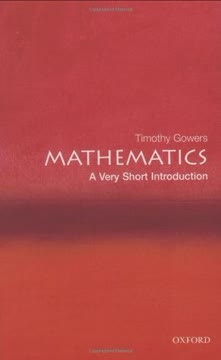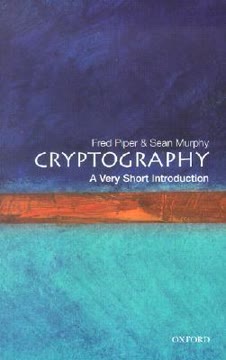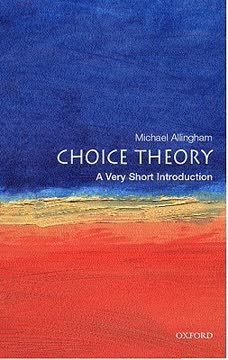Key Takeaways
1. Geopolitics: More Than Just Maps and Power Plays
Geopolitics, precisely because it is preoccupied with borders, resources, flows, territories, and identities, can provide a pathway for critical analysis and understanding – albeit a controversial one.
Beyond Simple Descriptions. Geopolitics isn't just about labeling places or drawing lines on a map; it's a complex field that examines how geography, power, and identity intersect to shape global events. It's about understanding the why behind international relations, not just the what. For example, the term "axis of evil" isn't just a geographical descriptor; it's a geopolitical tool used to frame certain countries as threats, influencing policy and public opinion.
Visual and Interpretive. Geopolitics is highly visual, using maps, tables, and photographs to convey its messages. However, these visuals are not neutral; they are interpretations of the world, often reflecting the biases and agendas of those who create them. Consider how different maps of the Middle East might emphasize different aspects of the region, shaping our understanding of its conflicts and complexities.
Everyday Relevance. Geopolitics isn't just for politicians and academics; it's part of our everyday lives. From the security checks at airports to the news reports about international conflicts, geopolitical forces shape our experiences and perceptions of the world. Understanding geopolitics helps us make sense of these forces and their impact on our lives.
2. The Tangled History of Geopolitics: From Science to Scapegoat
In 1954, Richard Hartshorne lambasted geopolitics as an intellectual poison.
Early Claims to Science. Geopolitics emerged in the late 19th century as a "science" that sought to explain international relations through geographical factors. Early thinkers like Rudolf Kjellen and Friedrich Ratzel viewed the state as a living organism, driven by the need for territory and resources. This perspective, while seemingly objective, was often used to justify expansionism and conflict.
Nazi Association. The association of German geopolitics with Nazism during World War II led to its widespread condemnation. Figures like Karl Haushofer, who advocated for German expansion, became symbols of the dangers of geopolitical thinking. This association led to a long period where the term was avoided by many scholars, especially in the US.
Post-War Revival and Critique. Despite its tainted past, geopolitics experienced a revival in the US during the Cold War, with figures like Henry Kissinger using it to understand global power dynamics. However, this revival also led to the development of "critical geopolitics," which questions the assumptions and biases embedded in traditional geopolitical thinking.
3. Territory, Resources, and Flows: The Geopolitical Chessboard
The dominant geopolitical architecture is an international system based on territorial states, exclusive jurisdictions, and national boundaries.
Territorial States. The world is largely organized around territorial states with defined borders and claims to sovereignty. These states are the primary actors in the international system, and their interactions are often shaped by their geographical location and access to resources. However, this system is not static; it is constantly being challenged and reshaped by globalization.
Resource Competition. Access to resources, such as oil, water, and minerals, is a major driver of geopolitical competition. Countries often vie for control over these resources, leading to conflicts and alliances. For example, the scramble for oil in the Middle East has been a constant source of geopolitical tension.
Flows and Interdependence. While territory and resources are important, so are flows of people, goods, ideas, and money. These flows can be both beneficial and disruptive, challenging the traditional notion of state control. The internet, for example, has created new channels for the flow of information, often bypassing state censorship.
4. Identity's Geopolitical Dance: Us vs. Them on a Global Stage
Identity requires difference in order to be, and it converts difference into otherness in order to secure its own self-certainty.
National Identity Construction. National identity is not a natural phenomenon; it is actively constructed through shared histories, symbols, and narratives. Governments often use education, media, and cultural events to promote a sense of national unity and purpose. For example, the Argentine government's emphasis on the "Malvinas" (Falkland Islands) as part of their national territory is a key element in their national identity.
The Role of the "Other". National identity is often defined in opposition to an "other," a group or country that is seen as different or threatening. During the Cold War, the Soviet Union served as the "other" for the United States, reinforcing a sense of American identity. This dynamic can lead to prejudice and conflict.
Beyond National Identity. Identity is not limited to the national level; it also exists at subnational, regional, and global levels. The European Union, for example, is an attempt to create a pan-regional identity, while groups like Al-Qaeda seek to create a global Islamic identity. These competing identities often clash, shaping geopolitical dynamics.
5. Maps: More Than Just Lines on Paper, They're Tools of Power
The map, perhaps the central referent of geography, is, and has been, fundamentally an instrument of power.
Maps as Interpretations. Maps are not neutral representations of reality; they are interpretations of the world, reflecting the biases and agendas of those who create them. Different map projections can distort the size and shape of countries, emphasizing certain regions over others. For example, the Mercator projection, often used in Western maps, exaggerates the size of Europe and North America while shrinking Africa and Latin America.
Geopolitical Messaging. Maps can be used to convey geopolitical messages, such as the importance of a particular region or the threat posed by a certain country. During the Cold War, polar-centered maps were used to emphasize the proximity of the Soviet Union to the United States.
Maps and Identity. Maps can also play a role in shaping national identity. For example, maps of Argentina often include the Falkland Islands as part of their territory, reinforcing their claim to the islands. Maps are not just about location; they are about power, identity, and control.
6. Popular Geopolitics: How Media Shapes Our Worldview
Geographical representations help to inform people’s understandings of the world and in that sense we are all geopolitical theorists.
Media's Influence. Popular media, including films, television, radio, and the internet, play a crucial role in shaping our understanding of global politics. These media outlets often present simplified and biased representations of complex issues, influencing public opinion and policy decisions. For example, Hollywood films often portray the United States as a heroic force for good, while depicting other countries as threats.
Framing and Narratives. The media uses "frames" to organize and present news, influencing how we interpret events. For example, the "war on terror" frame has shaped how many people understand conflicts in the Middle East, often overlooking the complex historical and political factors at play.
The Power of Images. Visual media, such as photographs and videos, can have a powerful impact on our emotions and perceptions. Images of war, suffering, and violence can shape public opinion and mobilize support for or against particular policies. The Abu Ghraib prison photos, for example, had a profound impact on public perceptions of the Iraq War.
7. The Shifting Sands of Global Order: From States to Networks
The world is not static, and the status quo is not sacred.
The State's Changing Role. While states remain important actors in the international system, their power is being challenged by globalization and the rise of non-state actors. Transnational corporations, international organizations, and social movements are increasingly shaping global events. For example, the World Trade Organization (WTO) has significant influence over global trade policies, often at the expense of national sovereignty.
The Rise of Networks. Global networks, such as terrorist organizations and social movements, are increasingly important in shaping global politics. These networks operate across borders, challenging the traditional notion of state control. Al-Qaeda, for example, is a global network that operates independently of any particular state.
Interdependence and Complexity. The world is becoming increasingly interconnected and interdependent, making it difficult for any single actor to control global events. This complexity requires new approaches to understanding and managing international relations. The global financial crisis of 2008, for example, demonstrated the interconnectedness of the global economy.
8. The American Geopolitical Predicament: Hegemony and Its Discontents
The United States of America will not permit the world’s most dangerous regimes to threaten us with the world’s most destructive weapons.
American Exceptionalism. The United States has long seen itself as an exceptional nation, with a unique role to play in the world. This belief has often led to a willingness to intervene in the affairs of other countries, sometimes with unintended consequences. The invasion of Iraq in 2003, for example, was justified by the belief that the US had a responsibility to remove a dangerous dictator.
The Limits of Power. Despite its military and economic power, the United States faces significant challenges in shaping the global order. The rise of China, the resurgence of Russia, and the spread of terrorism are all challenging American hegemony. The War on Terror, for example, has been costly and has not achieved its stated goals.
The Need for Legitimacy. The United States' ability to lead the world depends not only on its power but also on its legitimacy. Actions that are perceived as unilateral or unjust can undermine American influence and create resentment. The use of torture and the detention of prisoners at Guantanamo Bay, for example, have damaged America's reputation.
Last updated:
FAQ
What's "Geopolitics: A Very Short Introduction" about?
- Overview of Geopolitics: The book provides a concise introduction to the field of geopolitics, exploring how geographical factors influence global politics and international relations.
- Historical Context: It delves into the historical development of geopolitical thought, examining key figures and theories that have shaped the discipline.
- Contemporary Issues: The book addresses current geopolitical challenges, such as globalization, territorial disputes, and the impact of technology on international relations.
- Critical Analysis: Klaus Dodds offers a critical perspective on traditional geopolitical concepts, encouraging readers to question and analyze the power dynamics at play in global politics.
Why should I read "Geopolitics: A Very Short Introduction"?
- Accessible Introduction: The book is designed for readers new to the subject, providing a stimulating and accessible entry point into geopolitics.
- Expert Insight: Written by Klaus Dodds, an expert in the field, it offers authoritative insights into both historical and contemporary geopolitical issues.
- Broad Coverage: It covers a wide range of topics, from the intellectual history of geopolitics to its application in modern-day conflicts and international relations.
- Critical Perspective: The book encourages readers to think critically about geopolitical narratives and the implications of geopolitical strategies.
What are the key takeaways of "Geopolitics: A Very Short Introduction"?
- Geopolitical Influence: Geography plays a crucial role in shaping political power and international relations, affecting everything from resource distribution to military strategy.
- Historical Evolution: Geopolitical thought has evolved over time, influenced by historical events and changing global dynamics.
- Contemporary Relevance: Geopolitics remains highly relevant today, with issues like globalization, terrorism, and climate change impacting global politics.
- Critical Engagement: Readers are encouraged to critically engage with geopolitical concepts and consider the ethical implications of geopolitical strategies.
What is the definition of geopolitics according to Klaus Dodds?
- Complex Definition: Geopolitics is a complex and often contested term, used to describe the influence of geographical factors on political power and international relations.
- Two Understandings: Dodds outlines two main understandings: one that sees geopolitics as a guide to global politics using geographical templates, and another that examines how these templates are constructed and used.
- Visual Nature: Geopolitics is highly visual, often involving maps, charts, and other representations to convey political ideas.
- Critical Approach: The book favors a critical approach, questioning how geopolitical narratives are constructed and their impact on global politics.
How does "Geopolitics: A Very Short Introduction" address the concept of national identity?
- National Identity and Geopolitics: The book explores how national identity is constructed and maintained through geopolitical narratives and territorial claims.
- Case Studies: It examines specific case studies, such as Argentina's claim to the Falkland Islands and the United States' self-identity as a global leader.
- Identity and Conflict: National identity often plays a role in geopolitical conflicts, influencing public opinion and government policy.
- Dynamic Process: The construction of national identity is a dynamic process, influenced by historical events, cultural narratives, and geopolitical strategies.
What role do maps play in geopolitics according to the book?
- Maps as Tools of Power: Maps are powerful tools in geopolitics, used to represent and influence political realities.
- Historical Examples: The book discusses historical examples, such as Halford Mackinder's maps and their impact on geopolitical thought.
- Contemporary Usage: Maps continue to play a crucial role in modern geopolitics, shaping public perception and policy decisions.
- Critical Perspective: Dodds encourages readers to critically analyze maps, recognizing their potential to distort or manipulate geopolitical narratives.
How does Klaus Dodds view the relationship between geopolitics and globalization?
- Coexistence with Globalization: Geopolitics and globalization coexist, with geographical factors continuing to influence global politics despite increased interconnectedness.
- Impact on Sovereignty: Globalization challenges traditional notions of sovereignty, as states navigate complex networks of interdependence.
- Dynamic Reconfigurations: The book explores how globalization leads to dynamic reconfigurations of geopolitical power and territorial boundaries.
- Critical Engagement: Readers are encouraged to critically engage with the implications of globalization on geopolitical strategies and power dynamics.
What are the best quotes from "Geopolitics: A Very Short Introduction" and what do they mean?
- "Geopolitics provides ways of looking at the world and is highly visual as a consequence." This quote highlights the importance of visual representations, such as maps, in understanding geopolitical concepts.
- "Geopolitics is conceived as a form of discourse, able to produce and circulate spatial representations of global politics." It emphasizes the role of language and narratives in shaping geopolitical understanding.
- "The world is not static, and the status quo is not sacred." This quote underscores the dynamic nature of global politics and the need for adaptability in geopolitical strategies.
- "Geopolitics, precisely because it is preoccupied with borders, resources, flows, territories, and identities, can provide a pathway for critical analysis and understanding." It suggests that geopolitics offers valuable tools for analyzing complex global issues.
How does "Geopolitics: A Very Short Introduction" address the concept of the "axis of evil"?
- Geopolitical Labeling: The book discusses how terms like "axis of evil" are used in geopolitical discourse to label and categorize countries.
- Impact on Policy: Such labels can influence foreign policy decisions and justify military actions, as seen in the U.S. approach to Iraq and Iran.
- Critical Examination: Dodds encourages readers to critically examine the use of these labels and their implications for international relations.
- Simplification of Complexities: The book highlights the danger of oversimplifying complex geopolitical realities through such labels.
What is the significance of the "Heartland" theory in geopolitics?
- Mackinder's Theory: The "Heartland" theory, proposed by Halford Mackinder, suggests that control of the central Eurasian landmass (the Heartland) is key to global dominance.
- Historical Influence: This theory has historically influenced geopolitical strategies, particularly during the World Wars and the Cold War.
- Contemporary Relevance: The book discusses the continued relevance of the Heartland theory in modern geopolitics, especially in relation to Central Asia.
- Critical Perspective: Dodds encourages a critical examination of the theory, considering its limitations and the changing dynamics of global power.
How does Klaus Dodds address the concept of "critical geopolitics"?
- Critical Geopolitics Defined: Critical geopolitics examines how geopolitical narratives are constructed and the power dynamics they reflect.
- Challenging Traditional Views: It challenges traditional geopolitical views that often emphasize state-centric and militaristic perspectives.
- Focus on Discourse: The approach focuses on the discourse and language used in geopolitics, analyzing how they shape perceptions and policies.
- Encouraging Critical Thinking: Dodds advocates for critical thinking and questioning of geopolitical assumptions, encouraging readers to consider alternative perspectives.
What are the implications of the War on Terror for geopolitics according to the book?
- Redefining Threats: The War on Terror has redefined global threats, focusing on non-state actors and networks rather than traditional state-based conflicts.
- Impact on Sovereignty: It has challenged traditional notions of sovereignty, with interventions justified on the basis of pre-emption and global security.
- Geopolitical Narratives: The War on Terror has influenced geopolitical narratives, often framing certain regions and cultures as inherently threatening.
- Critical Examination: Dodds encourages a critical examination of the War on Terror, questioning its impact on international law, human rights, and global power dynamics.
Review Summary
Geopolitics: A Very Short Introduction receives mixed reviews. Some readers find it informative and thought-provoking, praising its coverage of geopolitical concepts and cultural influences. Others criticize its perceived bias, lack of depth, and focus on outdated events. The book's approach to critical geopolitics and its examination of popular culture are appreciated by some, while others find it strays from traditional geopolitical analysis. Several reviewers note that the book's content has become dated since its publication, particularly regarding post-9/11 geopolitics.
Very Short Introductions Series Series












Similar Books










Download PDF
Download EPUB
.epub digital book format is ideal for reading ebooks on phones, tablets, and e-readers.




